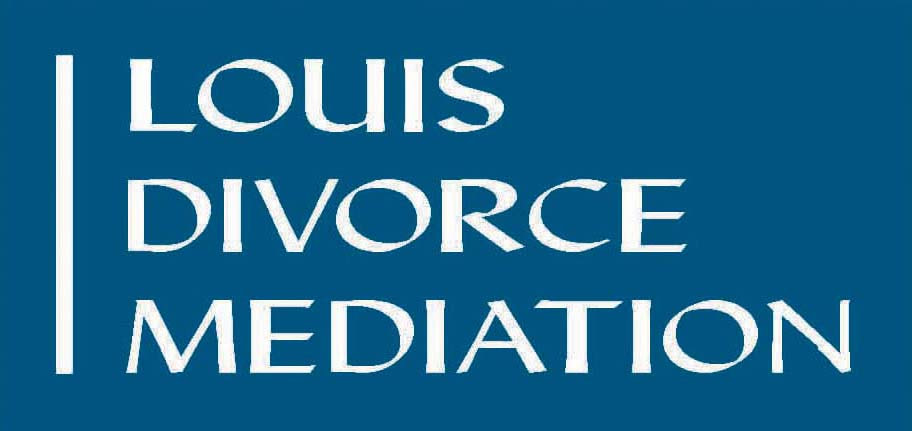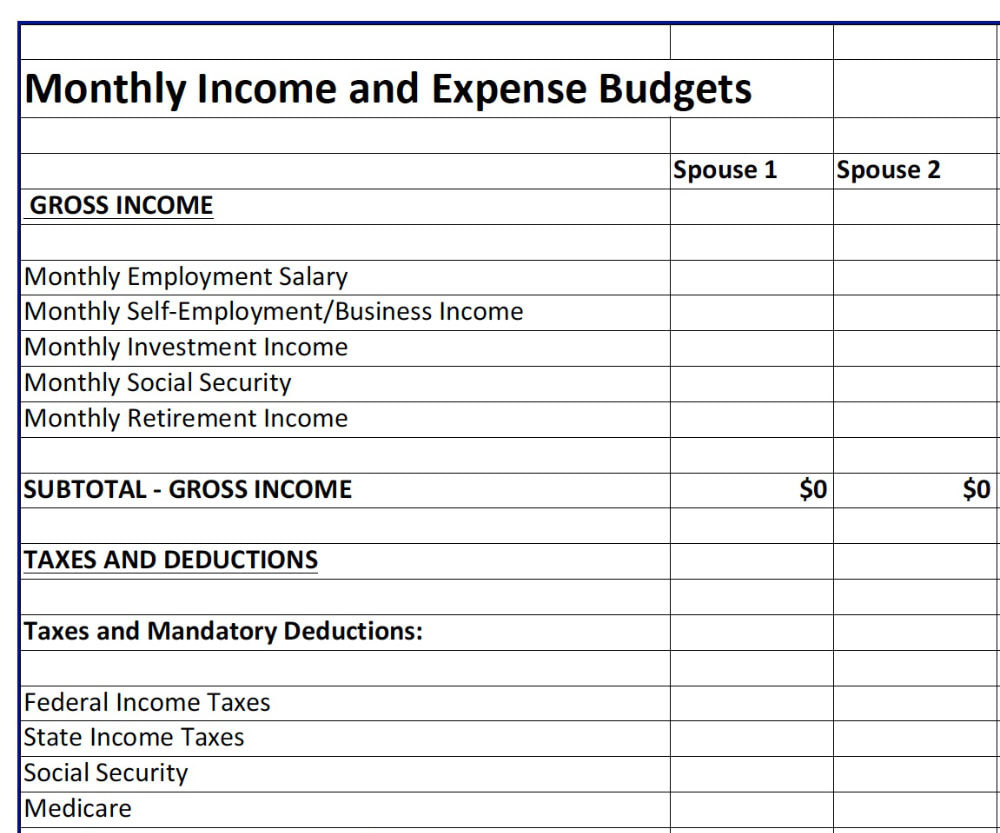Louis Divorce Mediation ~ Online and In-Person Mediation in Chicago
|
As a divorce mediator, my objective is to inform clients of all the tools and resources available to them. In that process, I am frequently asked, “If we choose divorce mediation, do we need attorneys?” The simplest answer to this question is “Yes.” Unfortunately, a simple answer is not always a complete one. While the “Model for Standards of Practice for Family and Divorce Mediation” states that a mediator should recommend that participants obtain independent legal representation, it is also true that the standards support self-determination by participants. “Self-determination is the act of coming to a voluntary, uncoerced decision in which each party makes free and informed choices as to process and outcome.” Because I am a firm believer in the right to self-determination, I will work with clients whether or not attorneys are involved. However, in my initial consultation with clients, we discuss the valuable role that attorneys can perform in the mediation process. In short, clients have a choice. They may decide, in spite of what I (or any mediator) may recommend, that they do not want to obtain the services of an attorney. Some divorce mediators will not work with couples unless each spouse engages the services of an attorney. Because I am a firm believer in the right to self-determination, I will work with clients whether or not attorneys are involved. However, in my initial consultation with clients, we discuss the valuable role that attorneys can perform in the mediation process. How Attorneys Can Assist the Mediation Process A primary goal of my divorce mediation process is informed decision-making. Providing legal information to clients is a neutral step that I take at the beginning of any mediation. However, an experienced divorce attorney can assist a spouse in making informed decisions by offering legal advice that is based on full understanding of the law and how the spouse’s circumstances would be treated in court. During the mediation process, some clients may desire to have their attorney(s) present to offer real-time support and advice. When mediations are “attorney-assisted,” the mediator continues to control the process, while the attorneys assist in promoting understanding. As a trained collaborative professional, I see attorney-assisted mediation as an opportunity to create an interdisciplinary team that promotes outcomes acceptable to all. Another option that can be beneficial (and usually more economical) involves clients engaging an attorney in a “consulting” capacity, meaning that the client can receive feedback and advice about what has happened in mediation sessions to be better prepared to negotiate effectively with a spouse at the next session. An Attorney’s Role at the Conclusion of Mediation When the mediation process has concluded, and the mediator has prepared a written document that includes all of the mutually agreed upon decisions that have been made by the spouses, either or both may engage an attorney in the capacity of “review attorney.” In this role, the attorney can independently discuss these decisions and confirm with the client that s/he truly believes that the agreements reached in mediation are in her/his best interest. In addition, since the granting of a divorce is a process that must include the court, the services of an attorney will often be engaged for purposes of preparing the legal documents to be submitted to the court. While some clients may decide to do this on their own, it can be a tricky undertaking and may be best given to a legal professional. Attorney Referrals I am often asked for referrals to attorneys who may act in any or all of the roles listed above. Since divorce mediation is about two spouses developing their own plan to meet their needs in a life transition, I favor attorneys who understand mediation and support this concept of self- determination. Many of my referrals are made to collaboratively trained attorneys, as there are many parallels between the collaborative divorce process and the mediation process. Thoughtful Choices The divorce mediation process offers an opportunity for choices to be made freely, and this includes what resources are used to help create mutually acceptable plans. When it comes to thinking about the use of attorneys in the divorce mediation process, the answer is not as simple as “Yes” or “No”. The more pertinent question may be “Why?”
13 Comments
We’ve established, in the previous blog, that it’s a good idea as you consider divorce to put together a budget to begin planning for your separate financial futures. Now let’s talk about the tools you’ll need to accomplish that, and then look at some tips that can keep you from losing your mind in the process!
Budgeting Tools I. The Budget Worksheet When I work with clients, I tell them to think of a budget as a list. There are two parts to this list:
Income The first part of the worksheet addresses sources of income, which may include the following:
Additional deductions from a paycheck are included in the expenses portion of the worksheet. Some deductions may be changing, and others may be optional (like retirement savings). After taxes are deducted from gross income, you will have an estimate of the income available each month. Expenses The second part of the worksheet covers expenses. These are the categories I use for adults:
The children’s budget—an important tool for discussion about how parents can meet the financial needs of their children while living in separate households—has its own set of categories. II. What You Need to Fill Out a Worksheet Your income: A paycheck (if you are paid a wage or salary) is the best source of information. If you receive other sources of income, look at the statements that detail that income. Your expenses: Estimate expenses by looking at your bank records and credit card statements for the past year. This will give you a sense of your spending history. Many clients can access information online, as so much billing is done electronically. And in some cases, your memory may be your best friend. For example, in considering vehicle expenses, think about how often you fill up and how much it costs when you do. Budgeting Tips The past is not the future. Use the freedom of starting a new chapter to think ahead and adjust your priorities, estimating what it will cost to live the life you envision. Use the freedom of starting a new chapter to think ahead and adjust your priorities, estimating what it will cost to live the life you envision. For example, if you know that your housing situation is going to change, do the research into what it will cost to rent a new place or what the mortgage might be on a new home. Remember: expenses that applied to both of you or that applied only to your spouse will need to be adjusted to reflect your living in separate households. Try to be accurate instead of precise. Remember, this is a planning document, and it is also a starting point, so the numbers will change. Therefore, try to be realistic about your estimates while, at the same time, not overstressing about precision. You are not being asked to be an accountant. Just do your best. Don’t be afraid to ask for help. Not everyone likes to work with numbers, and my guess is most people don’t. But maybe you have a friend or financial planner or other professional who can help. There are Certified Divorce Financial Analysts (CDFAs) who specialize in this work. I am one of them, and I often help my mediation clients to develop their budgets. Budgets are the start, not the finish. If your future budget puts you in a hole, don’t panic—that is just a starting point. When I am working with clients, my aim is to help both understand each other’s financial futures, which may mean that one will need financial assistance from the other, either in the form of spousal maintenance (to assist a lower-earning spouse) or child support/cost sharing for children’s expenses (to make sure that children can live in two sustainable households). Use the children’s budget to focus on their needs. As you begin the journey ahead, use the children’s budget as a separate plan, independent of each of you individually. The children’s budget can be a valuable tool for parents to get on the same page about how to provide children with stability and to support their bright futures. Budgeting is only part of the process of ending a marriage, but it can be an important step to begin to envision your separate lives and remove uncertainty around your own and your children’s futures. As an experienced divorce mediator as well as a Certified Divorce Financial Analyst, I can help. Contact me for a consultation. |
Categories |
David Louis, MPA, CDFA® • Louis Mediation Services - Chicago
|
Chicago Office: 1700 W Irving Park Rd., Suite 105, Chicago, IL 60613
Northbrook Office: 555 Skokie Blvd., Suite 500, Northbrook, IL 60062 |
Copyright © 2024



 RSS Feed
RSS Feed